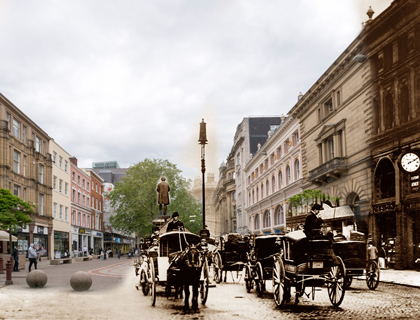Primary Times - the definitive what’s on and where to go family guide of activities and events for children of primary school age. Things to do with your kids during the school holidays including arts and craft activities, music and theatre for children, parties, competitions, days out, and family attractions along with term time drama schools, dance classes, after school clubs and sports activities. Things to do at a place near you!
Working Animals in Britain’s Past
 On the second anniversary of International Working Animal Day, we look at the fundamental role played by working animals in shaping Britain and their vital contribution to developing countries
On the second anniversary of International Working Animal Day, we look at the fundamental role played by working animals in shaping Britain and their vital contribution to developing countries
Working animals are a distant memory in the UK despite their fundamental role in Britain’s past and many of the world’s developing countries today.
New research released today by international animal charity SPANA finds that nearly 40 per cent of the nation does not even know what a working animal is, with 22 per cent of Brits confessing to have never heard the term ‘working animal’ before.
When asked what a working animal is, 41 per cent of the surveyed Brits inaccurately think they are animals used for entertainment; 32 per cent of Brits assume they are farm animals, such as dairy cows; 11 per cent think they are animals used in media while some (two per cent) even go as far as believing they are pets brought into the office by their owners.
This year marks the second anniversary of International Working Animal Day, which aims to raise awareness of the vital role played by working animals.
For centuries, working animals - such as horses and oxen - were the main source of power in the UK and the driving force of agriculture, transport, mining and warfare. In 1900, almost every vehicle on the streets of London was horse-drawn and pit ponies were still working underground in British coal mines in 1999.
“When we hear the term ‘horsepower’ today, most people think of fast cars. But, in Britain, horses and other working animals were our engines for thousands of years. They helped build our towns and cities, farmed our land and were our main form of transport. Their contribution to British economic and social development is indisputable. Yet, it’s a bond many have forgotten,” said Geoffrey Dennis, Chief Executive of SPANA.
Whilst cart horses and pit ponies have been replaced by cars, buses, tractors and trains in the UK today, working animals continue to play a vital role in developing countries worldwide. Nearly one billion of the world’s poorest people rely on working animals for their livelihoods, with an estimated 200 million working animals doing the job of trucks, tractors and taxis.



